
When the Macedonian king Alexander the Great arrived at the barren island of Pharos in 331 BC, he was still in his mid-twenties and barely five years into his reign. The ambitious young warrior had been drawn to this spot on Egypt’s Mediterranean shore after reading about it in the epic poetry of Homer, most revered of the ancient Greek writers. A lover of literature, Alexander had even styled his hair in long locks to emulate Homer’s hero, Achilles.
What he found was a tiny, lifeless island facing a series of small fishing villages scattered across a windswept coast. A few miles to the south on the mainland spread a vast freshwater lake, around which the ancient Egyptians had constructed a canal network.
In his unceasing quest for world domination, this was just the location for which Alexander had long searched – at the intersection of Africa, Europe and Asia. And when he arrived at this strategic hotspot, he dropped to his knees in a state of ecstasy and began scattering barley across the sandy ground, roughly designing the layout of what would soon become the world’s first modern city – a magnificent capital that would change the course of history. Named in honour of its founder, Alexandria was established that very same year, with a causeway measuring seven stadia (around 1.2km) built to connect Pharos to the coast.
Alexander himself was soon on his way eastward in search of his next adventure; he didn’t even wait to watch his new city being built. But its fate was now set, associated with a founding myth and a living hero, and with both Alexander’s city plan and a trusted architect to enact it.
Bu hikaye BBC History UK dergisinin March 2024 sayısından alınmıştır.
Start your 7-day Magzter GOLD free trial to access thousands of curated premium stories, and 9,000+ magazines and newspapers.
Already a subscriber ? Giriş Yap
Bu hikaye BBC History UK dergisinin March 2024 sayısından alınmıştır.
Start your 7-day Magzter GOLD free trial to access thousands of curated premium stories, and 9,000+ magazines and newspapers.
Already a subscriber? Giriş Yap

Viking mussels
ELEANOR BARNETT digs into archaeological research to recreate a Viking-cum-AngloSaxon seafood dish from medieval York
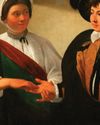
Fingers, frog's and fairies
Fortune telling was all the rage in the 16th and 17th centuries, and practitioners would stop at nothing to tap in to the supernatural. Martha McGill tells a story of Highland seers, tarot cards and encounters with the spirit world
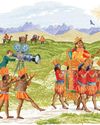
Nothing matches being with Alexander the Great on foot in the Hindu Kush
AT OUR LITTLE FILM COMPANY, MAYA VISION, we recently took the decision to digitise all of the rushes of our key films so that we could dispose of hundreds of boxes of tapes that had been kept in storage, throwing out stuff we thought we would never need again.

Library of the dead
Highgate Cemetery, created as a fashionable resting place for wealthy Victorian dead, is a veritable who's who of London's great and good. PETER ROSS roams the avenues of this most atmospheric necropolis
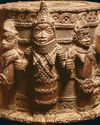
Slavery, exploitation and racism. These tragedies have long dominated histories of Africa. But there's another way to tell this story. And it's one that puts Africans right at the centre of their continent's extraordinarily rich and vibrant past
An 1414, in the Chinese city of Nanjing, a giraffe caused a stir. Amid a crowd of shocked, noble spectators, an official, leading the creature via a rope tied round its face, presented it to China's Yongle emperor. His officials said it was a qilin - an auspicious unicorn - which his sage governance had made appear.
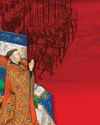
England's forgotten hero
When the Hundred Years' War was reaching a climax, one man was fighting tenaciously to secure the English claim to the French crown. So why, asks Joanna Arman, is Henry V's formidable brother, John, Duke of Bedford, not better known?
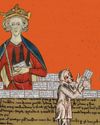
HENRY III AND THE MAGNA CARTA THAT MATTERED
King John's sealing of a charter at Runnymede in 1215 is one of the most feted moments of the Middle Ages. Yet, writes David Carpenter, it was the charter issued by his son 10 years later that became fundamental to England's history

Gutenberg publishes a pioneering new book
‘The printing press triggers an information revolution
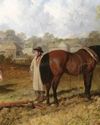
How empire ruptured rural Britain
We know that enslaved Africans and their descendants suffered in the distant colonies of empire. But, as Corinne Fowler explains, the colonial system also had dire impacts on people in the countryside of the 'motherland'

"I FELT VERY ALONE IN A WORLD GONE HORRIBLY MAD"
It was a moment of possibilities, dislocation and dread. Dan Todman tells the story of the 1.5 million urban Britons evacuated to the countryside at the start of the Second World War